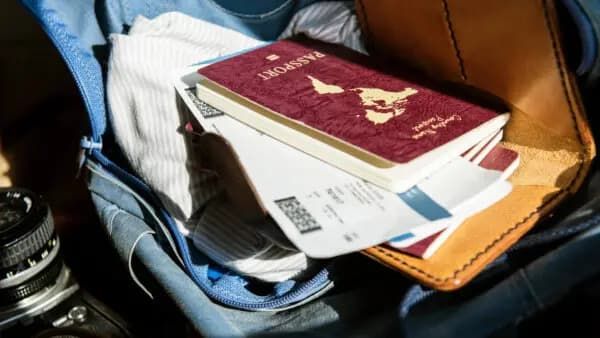Andean migratory status: everything you need to know

On August 11, 2021, Decision 878, the “Andean Migratory Statute”, came into force. The purpose of this rule is to regulate the community right of movement and establishes temporary and permanent residence for Andean citizens in Bolivia, Colombia, Ecuador and Peru.
Nationals of CAN countries may enter member states for recreational or tourism purposes for a period of 90 days, extendable for another 90 days, without exceeding 180 calendar days, continuous or discontinuous, in the same year, with only a valid citizenship card from their country of nationality.
In addition, they will have the option to apply for the Andean migrant visa, which will be granted for a period of up to two years, and subsequently, they may apply for the Andean migrant residency, which would be granted for an indefinite term.
Since January 2022, the Ministry of Foreign Affairs has enabled the option to apply for these visas.
It should be noted that, during the first two years, only the Andean Migrant Visa will be authorized, since, in order to be eligible for the Andean Residency, it is necessary to have completed two years as holder of the Andean Migrant Visa.
Necessary documents
For the visa that allows entry for more than 180 days is required:
- Valid travel document valid for at least six months with which you will enter or have entered the immigration territory.
- Current certificate attesting to the absence of police, judicial or criminal record in the country of nationality or the country of reception.
- Payment of the fee for services, as provided for in the respective domestic legislation.
- Written statement of intent to establish temporary residence in the receiving country.
Both temporary and permanent residence, persons may enter, leave, move and stay freely in the immigration territory, subject to the fulfillment of the formalities that the Member State considers.
In addition, they will have access to any activity, whether self-employed or employed, under the same conditions as nationals of the receiving countries, in accordance with the legal rules of each State.

Andean Resident Visa Documentation (for Colombia)
The Colombian Chancellery has indicated the following documents required for the application of the Andean resident visa:
- Passport valid for at least 6 months
- Have held a valid M Andean Migrant visa for two years and submit your R visa application within 90 days prior to the expiration of your M Andean Migrant visa.
- Certificate of Migratory Movements issued by the Special Administrative Unit of Migration Colombia;
- Copy of the Alien Registration Card;
- Proof of lawful means of subsistence for the petitioning Andean national and the members of his or her family group in the country in Colombia.
This measure is quite similar to the Mercosur Migrant Visa, which was granted by virtue of the reciprocity principle to nationals of the countries that are part of the agreement, allowing its holder to carry out any lawful activity within the national territory, i.e. business, study, work, investment, etc., for up to three years.
At present, nationals of CAN member states benefit from this type of visa, therefore, in addition to being able to apply for this type of visa, they will have the possibility of applying for a resident visa for an indefinite period after having been holders of a Mercosur Migrant visa for two years.
In the same vein, foreigners entering Colombia will not have major changes or novelties at the immigration level at least for now, but this step of the CAN seems to be aimed at strengthening community law in the region.
In conclusion
We can affirm that the CAN measures have a clear inspiration in the European Union, and that these measures represent a great change in the migration policy of South America, which directs the efforts of the member states in the framework of cooperation, freedom of transit of people and goods, and finally in favor of reciprocity and non-discrimination.
References:
#2 https://www.comunidadandina.org/DocOficialesFiles/Gacetas/Gaceta%204239.pdf
Recommended articles
Would you like some advice?
Please fill out the following form, and we will get in touch with you.
- Phone:300 388 4986
- WhatsApp:Click to start your WhatsApp chat
